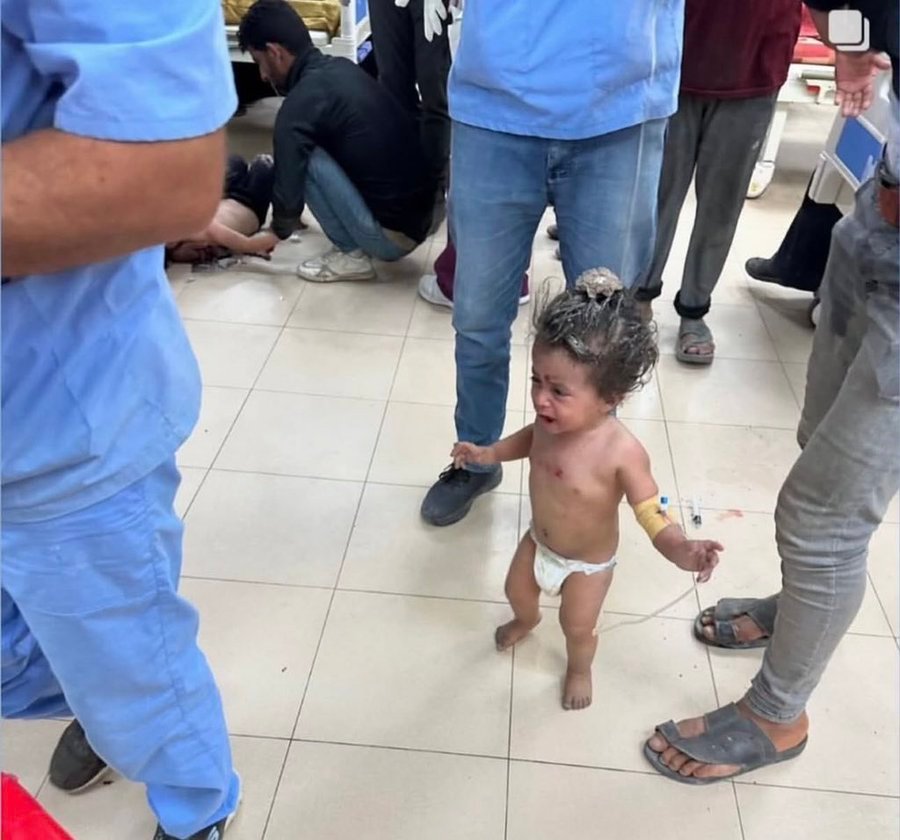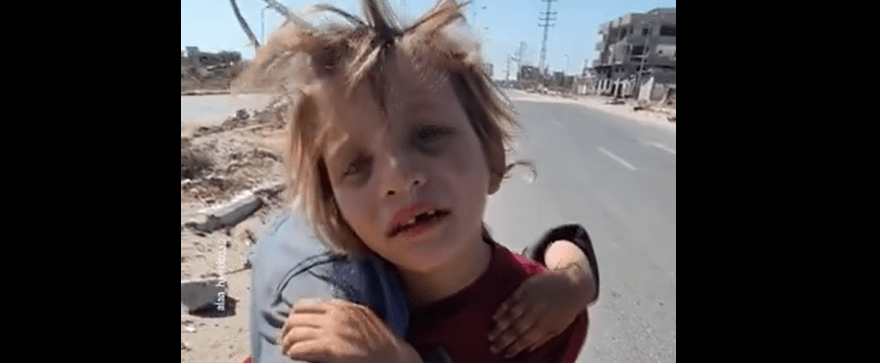Traumatized children (1) | Traumatized children (2) | Traumatized children (3) | Traumatized children (4) |
Traumatized children (5) | Traumatized children (6) | Traumatized children (7) | Traumatized children (8)
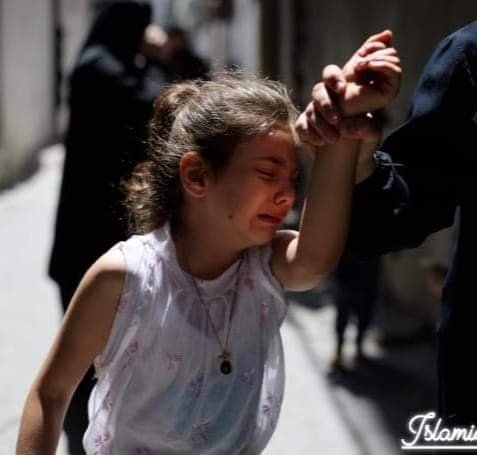
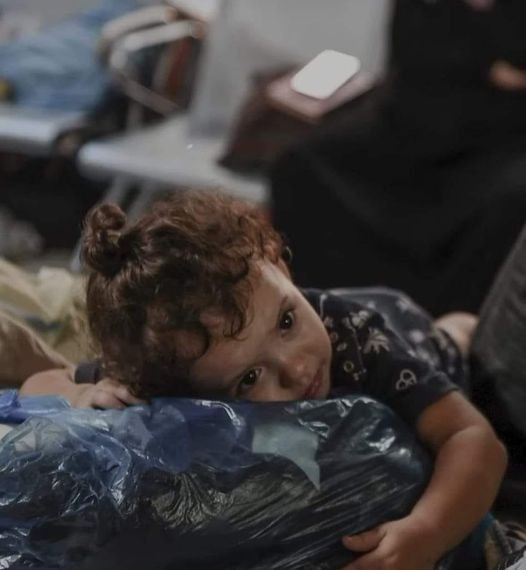
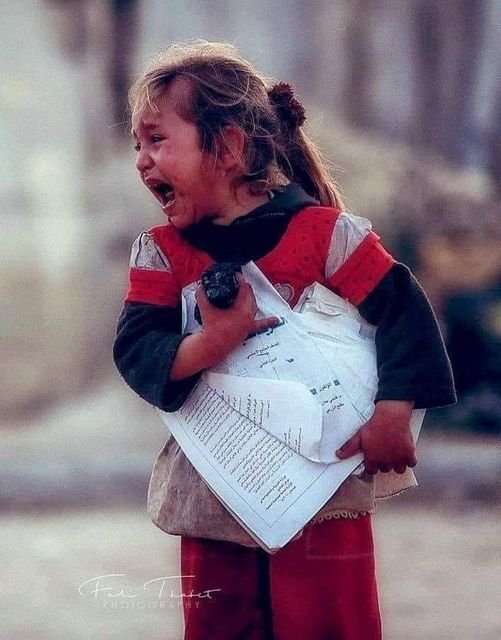
Qamar and her younger sister Somaya
Their names are Qamar and Somaia Soboh. Qamar carried her younger sister, Somaia, to the hospital barefoot. Somaia’s leg was injured and has since healed, and their smiles light up the world.


“Every prisoner who’s inside with you is your brother. Your only enemy is the jailer,” Ayham Al-Salaymah’s father, Nawwaf, advised his 14-year-old son as he prepared to enter Israeli prisons today to serve a one-year sentence. Ayham was arrested by Israeli forces for allegedly throwing stones at settlers who had seized Palestinian homes in the Ras Al-Amoud neighborhood. Al-Salaymah is the youngest prisoner in Israeli jails, as the Israeli authorities did not stop with his initial 14-month house arrest at his family home in the Ras Al-Amoud neighborhood in occupied Jerusalem, but decided to imprison him. On November 7th, the Israeli Knesset officially approved a law allowing the imprisonment of Palestinians under the age of 14.


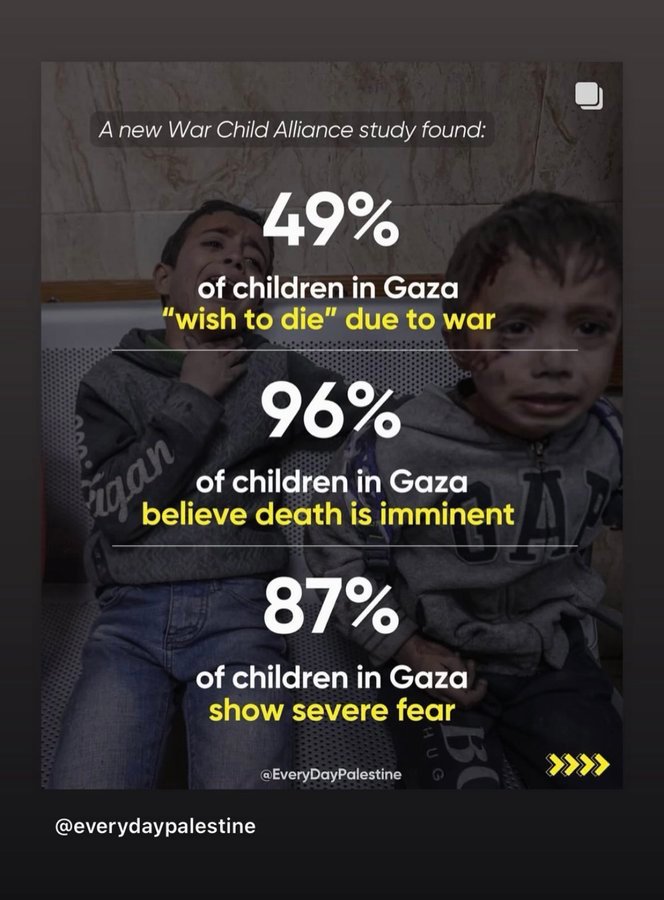

@jjz1600
This photo of children in Gaza in today’s New York Times should haunt Biden & co. forever. They enabled this genocidal nightmare to continue for 14 months because they couldn’t see Palestinian lives as equal to Israelis. I will never forgive them for this crime.
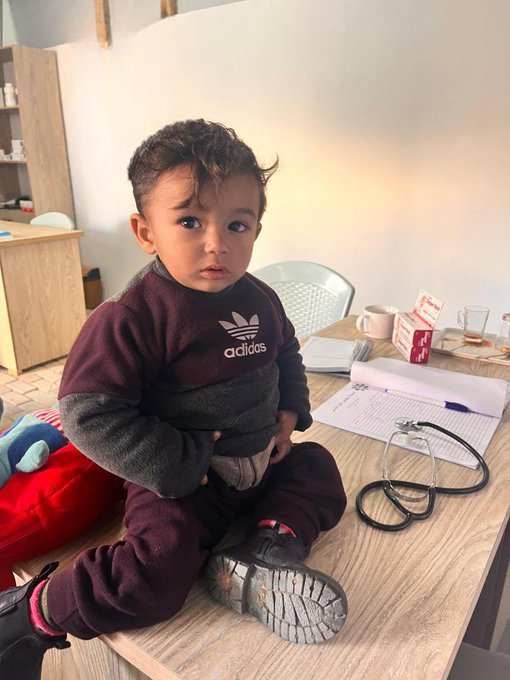
@ezzingaza
The child in the photo is Adli Al-Asali, a one-year-and-three-month-old boy. His aunt brought him to the clinic, deeply concerned about his severe malnutrition, refusal to drink milk, and rapidly declining weight. I asked if he had been breastfed or fed formula, and her answer shattered me. She explained that the problem began a few days ago when his mother, who had been nursing him, was killed. Since then, he has refused to take any milk. They came to the clinic seeking guidance—desperately asking how they could save this child, whose health is visibly deteriorating before their eyes. Some cases we encounter in Gaza go beyond the scope of medical textbooks, offering no solutions even to the world’s most skilled doctors. How do we explain to this innocent child that his mother is gone? How do we tell him that he must now face the cruelty of this world without her milk, her care, her love, or her protection?
